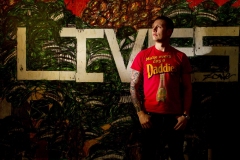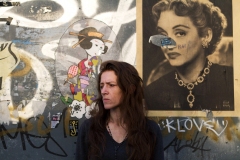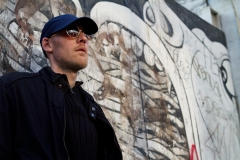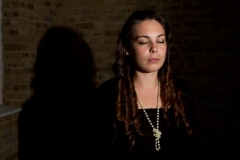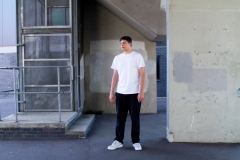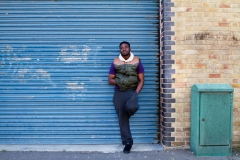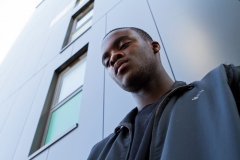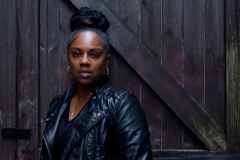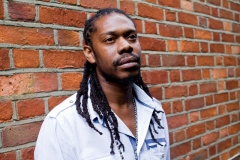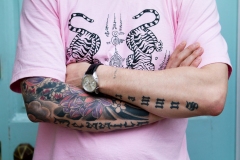In 2011, 75% of prisoners in the UK were reoffenders, with many returning back to prison as shortly as days after their release. While imprisoning criminals keeps them out of the sight of society and prevent them from committing another crime for the duration of their sentence, does it offer the right solution to stop them from reoffending, and to help reintegration into society?
In 1993 Tony Blair promised that he would be “tough on crime and tough on the causes of crime”, and Michael Howard told that “prison works”. Since then, due to the changing criminal laws, and despite the gradually decreasing crime rates since 1950, UK prison population doubled, reaching a record level in its history, almost 85,000 prisoners in 2010. That makes the UK the second in highest incarceration rate in Western Europe. As a response to overcrowding there have been 19 new incarcerating institutions built in the past years and more are in the pipeline.
While I was working on this project, I made contacts with a few non-profit organizations that think otherwise. Organizations founded by ex-offenders themselves, they understand the deep underlying issues and therefore have a more credible approach to those young that lead a troubled life. They allowed me to follow their curriculum, and meet in person with those that are half way to change their life around.
(In collaboration with Uservoice – a non profit organization that aims to better the UK’s criminal justice system’s approach to rehabilitation programs for drug users and ex-offenders; and Foundation4Life – a charitable organization helping young gang members to overcome childhood traumas, deter them from crime and find a new meaning to their lives.)
.
Garry, 31, spent overall eight years in prison for drug related offences. He now works at User Voice as a coordinator of volunteers.
When I was a kid, I had lots of hatred in me. I hated everybody, especially those with any authority. I had no respect for women either because my mum betrayed me by sticking with my stepdad. He used to beat me, sometimes for no reason at all. He used to say that I was worth nothing and that I’d never achieve a thing.
Then one day, when I was 13, he told mum to put me into care or he would leave her. Mum chose him. In care you make friends, and many are involved in crime. That is how I started to stray off. Although they were not really friends, they used to bully me, and when I tried to speak out to my caretaker, he took off his belt and hit me. Sometimes I felt safer in prison.
The first time that I was arrested was when I was 15 years old, ten days before Christmas. I was really scared of going to prison and I didn’t understand why the other guys in the jail bus were so cheerful. Obviously it was not their first time.
In jail you are put with a bunch of other troubled and damaged kids with barely a thing to do to pass the time. At my first time in prison I was bullied a lot again, I guess they sensed that I was scared. Once I even tried to cut my wrists to escape it. In prison you get very little support – any help from a police officer would be far too much effort on their part, they just like staying in the comfort of their routine.
Spending time in prison shouldn’t be just punishment; it doesn’t work with kids who have no reference of ‘reward’, which would put ‘punishment’ into context. We just come out even more damaged than we were before. It’s set up to fail. Most of us were victims ourselves before we committed a crime and that’s what should be addressed. Individual therapy could have helped the most to stop me from reoffending.
When I was older, I was labelled by my previous convictions and had hardly any education or work experience I could use to find a job. Most people go to prison promising themselves that they will change their life and prison should catch you while the enthusiasm is there. They should engage the prisoners meaningfully and help them to gain employable skills. The types of things we get to do inside are very menial, like working the yard, and they don’t teach us any useful skills that we can use in the outside world
.
Joab (19) gang member in his teens, involved in selling drugs and violent crimes, escaping death on various occasions. His friend died in his arms from a gun shot as a result of a battle between rivalling gangs. Now he is participating in a mentorship program to become mentor himself.
My dad was 16 years in jail for armed robbery – post office and jewelry shop. He was barely ever around. I lived with my mum in a hostal where she worked. Sometimes she sent me off abroad for a few months to live with other relatives.My parents often kicked me out of the house because they couldn’t handle me.
I often yelled at my teachers or tried to annoy them so they sent me out. That was not a punishment to me, I actually wanted that.
At 14 I just liked the attention. I felt I was invincible. I didn’t care about going to prison. I just wanted to be popular. Become a big drug dealer, have lot’s of girls, smoke pot. To impress people.
Now I want to be like Denzel (founder of Foundation4Life, ex-gang member himself, now helping others to stay out of it).
.
Nicola (21) has been arrested many times for violence, and sent for 5 months to prison for drug trafficking.
Alcohol made me do things I didn’t wanna do. It made me violent, got me into trouble.
When I was 5 my dad left. He was an alcoholic.
At 12 I was sexually abused by the neighbour.
At 17-18 my mum kicked me out so I had to survive by myself.
At 15-16 I did a lots of self harming, cutting my wrist – all the past was coming up, that was my way of expressing myself. I was ashamed.
At school they saw what was going on but no-one understood or stepped up to help.
People just don’t understand.
A lot’s of people are doing their crime because of what happened in their lives. It’s obviously not an excuse for it, but they are hurt.
There are kids who got to survive.
.
Karen, 36, used to be a sign language teacher before she became a heroine addict. She served multiple sentences, mainly for shoplifting and other minor thefts in order to support her drug addiction.
In prison, nobody really helps you to come off the drugs; it’s more to maintain your habits. When you enter, the doctor sees you briefly and prescribes you with a dose of methadone that you get every day from then on. If you’re arrested on a Friday, you have to wait three days before you can get your dose, since court doesn’t take place on a weekend. Once you’re in court, you just say anything to the judge to get to prison so you can get your methadone.
On a normal day in prison you have one hour to exercise, shower and spend time in the yard. The other 23 hours are spent locked up on your own, or if you are part of the working team, you get a few hours to clean the yard, peel potatoes or other similar activities. So, when you are sitting in your cell alone the whole day for weeks and months, the only thing to get you through is to dream about being on drugs again. This is the only thing you have – you hypnotize yourself to crave it even more.
The dose you get in prison gradually decreases but this happens very slowly, and most of the time, your sentence is finished before you are completely clear. So, when you are released you have a maintained need for the drug, with an ever stronger craving for it.
Once outside, you are also faced with housing problems. When you have been arrested, word reaches the street and people often rob your house. Or your landlord throws your stuff outside because you couldn’t keep paying the rent.
Lost everything and having nowhere to go, you have to wait between three weeks and three months for accommodation services, even though they know your release date way before it happens. If you manage to survive this period without falling back to crime, they put you in a hostel surrounded by junkies. Of course, you can also make a new claim for benefits, the proof of which accepted by a new landlord, but for this, you need the contract with the landlord. It’s a vicious circle and you just can’t win.
Probation services were established to supervise and support offenders. During my probation, I had three different officers, meaning that I was never able to build a personal relationship with them. They always asked the same three questions – how are you, how is your drug use and when is your next appointment? They don’t have time to individually care for 80 people. It’s supposed to be social work, but somehow it’s turned into a government target, ticking boxes.
